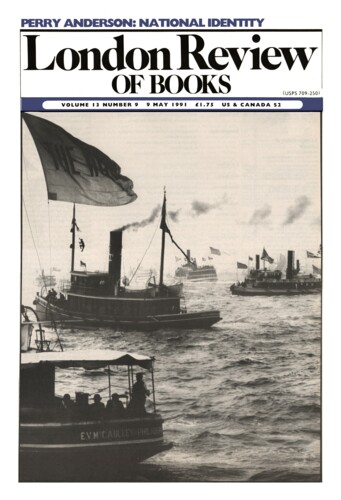‘Abu Nidal, Abu Shmidal’
Avi Shlaim, 9 May 1991
In March 1954 Isser Harel made his first official visit to the United States as head of Mossad. Warmly received by Allen Dulles, the director of the CIA, he presented his American opposite number with an ancient dagger inscribed with the words from the Psalms: ‘The Guardian of Israel neither slumbers nor sleeps.’ Like the celestial guardian, Mossad was expected to uphold a high standard of morality, to show integrity and commitment in the service of a noble cause. The contrast between Mossad and the secret services of other states was deliberately emphasised, just as the Israeli Army was designated Israel Defence Force to suggest that its role was purely defensive. With the passage of time a popular image developed of Mossad, based partly on fact and partly on fantasy, as the best intelligence service in the world – an image reinforced by novels like John le Carré’s The Little Drummer Girl and Agents of Innocence by the American writer David Ignatius. In recent years, however, a number of scandals have badly tarnished the reputation of Israel’s security services and stimulated calls for greater public accountability. One of the most damaging blows was struck by Victor Ostrovsky – like the author of Spycatcher, a disgruntled former insider – in a book which the Israeli Government unsuccessfully tried to suppress, By Way of Deception: The Making and Unmaking of a Mossad Officer. Interestingly, the title of Ostrovsky’s book was inspired by another Biblical injunction, which Mossad adopted as its motto: ‘By way of deception, thou shalt do war.’’é


